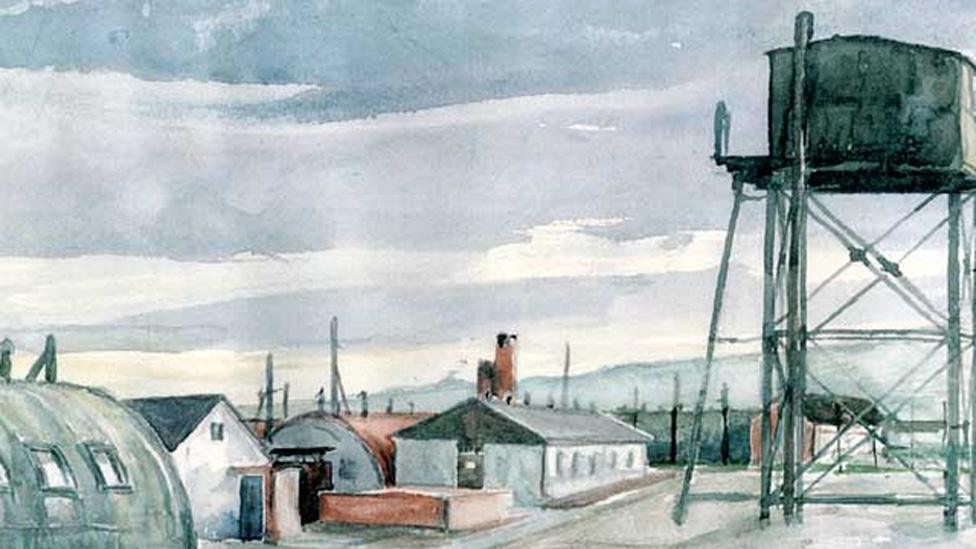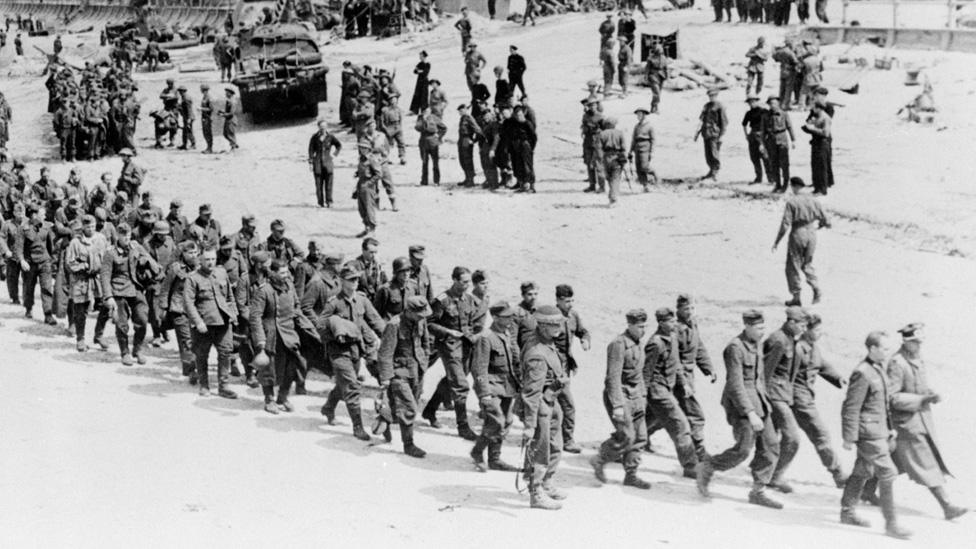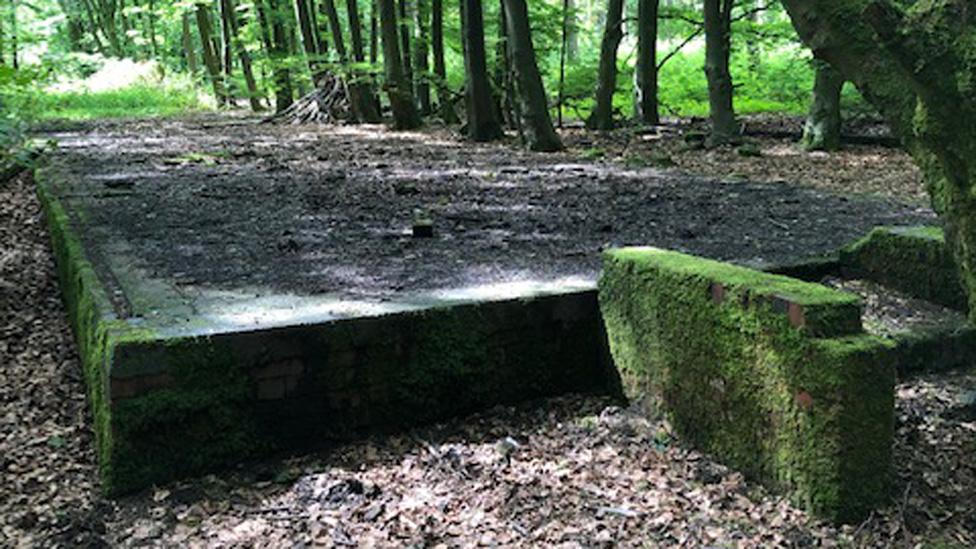Britain's biggest PoW camp excavated in Sheffield
- Published

The camp, seen in an artist's impression, was closed in the late 1940s
The site of Britain's biggest prisoner of war camp is being excavated by archaeology students.
Lodge Moor camp just outside Sheffield held more than 11,000 prisoners during World War Two.
It was abandoned after the war and woodland slowly covered the site, leaving just the foundations of some of the buildings visible.
Students from the University of Sheffield said they hoped the site would now be preserved.
Rob Johnson, one of the students working on the dig, said the camp became more crowded as the war progressed.
"The prisoner of war camp was a very unpleasant place to stay," he said.

Prisoner numbers increased following the D Day invasion of France in 1944
"The prisoners were fed food out of galvanised dustbins, had to stand outside in the mud, rain and cold for several hours a day during roll call, and since it was so overpopulated as a transit camp, they were squashed into tents or the barracks with little personal space."
As well as being used during World War Two the camp saw service during World War One.
One of its most famous inmates was German admiral Karl Doenitz. He was taken prisoner in 1918 when a submarine under his command was captured.
Doenitz spent around six weeks at the Sheffield camp, during which he plotted his escape by feigning mental illness to avoid being tried as a war criminal.
In World War Two he was a senior officer in Nazi Germany and became president of the country after Hitler committed suicide in 1945.

Only a few remains of buildings on the site are visible
After researching local archives, one of the archaeology students Samuel Timson discovered there was a successful break out from the camp.
"Some of the German prisoners managed to escape on 20 December 1944 but were recaptured without a fight 24 hours later in Rotherham, " he said.
"After the war, some of the prisoners decided to stay in Sheffield - for example we found a newspaper interview with a former prisoner who became a nurse."

Follow BBC Yorkshire on Facebook, external, Twitter, external and Instagram, external. Send your story ideas to yorkslincs.news@bbc.co.uk, external
- Published15 August 2015

- Published15 March 2015

- Published31 July 2013
